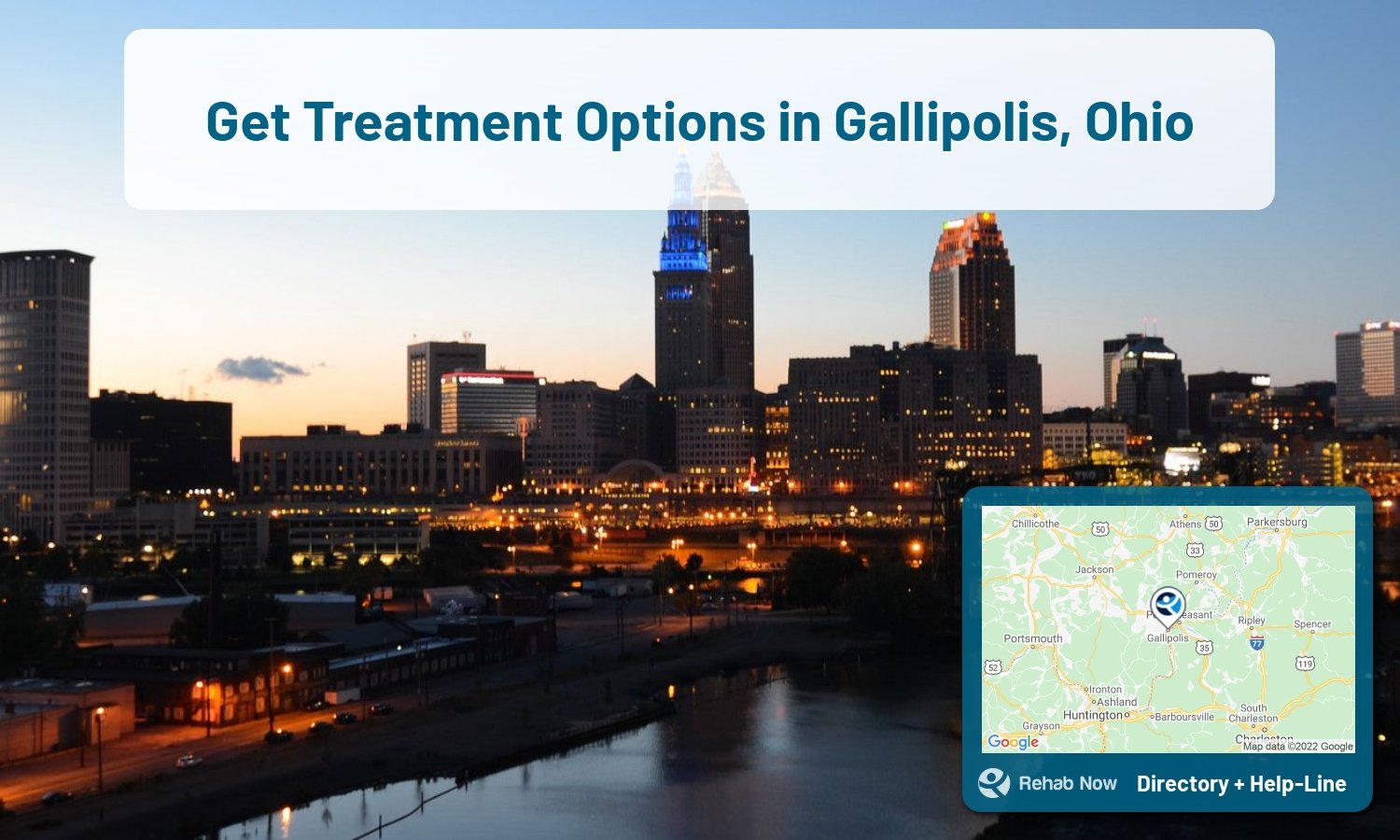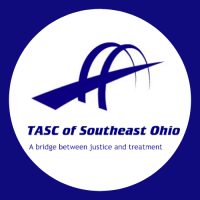Get Treatment Options in Gallipolis, Ohio
Gallipolis, Ohio has a relatively high rate of drug addiction and abuse. This is likely due to the fact that the city is located near several different drug trafficking routes. Some of the most commonly abused drugs in Gallipolis include marijuana, opioids, methamphetamines, and cocaine. What’s makes the problem worse is that these drugs are easily accessible and affordable.
These problems can have a significant impact on the community as a whole, as addiction can lead to crime, violence, and other social problems. If you or someone you know is struggling with addiction, it’s important to get help as soon as possible. There are a number of treatment options available in Gallipolis, Ohio, to help you or your loved one get on the road to recovery.
Gallipolis has resources for healthcare and a happy future with a range of drug and alcohol recovery programs all located within Ohio. Find a facility in our list below which fits your needs, or contact us for individual recommendations.
Contact Your Ohio Admissions Expert
We will help you find treatment based on your location, budget, and specific needs and help you get started safely.
Free + Confidential Consultation
Browse 5 Centers in Gallipolis, Ohio
OVP Health
Gallipolis, Ohio offers an addiction treatment facility with trained and experienced staff that offers a range of care levels, from outpatient to inpatient, and is accredited by CARF, meeting the highest industry standards.

Woodland Centers – Gallipolis is an accredited addiction treatment center in Gallipolis, Ohio that offers a wide range of resources and services, including trauma therapy and detoxification, tailored to the individual needs of its clients.


TASC of Southeast Ohio
TASC of Southeast Ohio's Gallipolis, OH drug rehab center offers an array of recovery services with varying levels of care, including Aftercare Support, Drug Rehab, Dual-Diagnosis, Intensive Outpatient, and Outpatient Services that utilize medically supervised detoxification services, evidence-based clinical therapies, and holistic approaches to help individuals overcome their addiction in a way tailored to their needs.
Health Recovery Services - Gallia Outpatient is an accredited addiction treatment facility providing a variety of services, levels of care, and tailored treatment plans to individuals seeking support to achieve sober living.

Family Addiction Community
Family Addiction Community is a drug rehab center in Ohio that provides individualized care and treatment plans for patients with addiction problems, focusing on helping them understand their addiction and develop the skills needed to break the cycle of addiction.
Drug and Alcohol Treatment in Gallipolis, OH
It can be hard to admit that you or a loved one has an addiction. It may seem like it’s just not worth the pain of recovery, but there are many reasons why getting treatment is necessary and important.
If your loved one is in denial about their problem, they might need some help finding the best way to get sober. You can start by looking into drug and alcohol treatment centers in Gallipolis, OH.

What Types of Treatment Are Available in Gallipolis, Ohio?
There are many different types of drug treatment available in Gallipolis, Ohio. Some common options include outpatient treatment, residential treatment, and detoxification.
Outpatient treatment is typically less expensive and allows patients to live at home while receiving treatment. This type of treatment may be a good option for those who have a mild addiction or for those who are not able to take time off from work or school.
Residential treatment requires patients to live at a facility while receiving treatment. This type of treatment is typically more expensive, but it allows patients to focus completely on their recovery. Residential treatment may be a good option for those who have a severe addiction or for those who have tried outpatient treatment unsuccessfully.
Detoxification is the process of withdrawing from drugs or alcohol. This process can be dangerous and should only be done under the supervision of a doctor. Detoxification can be done in an inpatient or outpatient setting.
Drug Abuse Statistics in Gallipolis, Ohio
According to the Ohio Department of Mental Health and Addiction Services, the rate of drug addiction and abuse in Gallipolis is about 7.5% of the population. What’s even more alarming is about 1 in 8 of those people are considered to be in “severe addiction.”
Marijuana and prescriptions drugs are the most commonly abused substances in Gallipolis, with about 4% of the population abusing marijuana and 2% abusing prescription drugs. However, there has been a recent increase in heroin abuse, with about 0.5% of the population abusing this drug.
- 27% of drug overdose deaths in Gallipolis involved opioids.
- The number of heroin overdose deaths has increased by 40% since 2010.
- 33% of high school students in Gallipolis have offered, sold, or tried drugs.
- 24% of people with a drug addiction also have a mental illness.
Additional Treatment Centers in Ohio
Ohio is suffering from a drug abuse problem that is costing thousands of its residents their lives every single year. Opioids, particularly Fentanyl and heroin, are the leading drugs in the state. The state ranks in the top 10 for illicit use of painkillers. Opioid-related overdose rates in Ohio are by far some of the highest in the country.
Still haven't found the right recovery center? Browse nearby Ohio cities.
- Perrysburg, OH (203.6 mi.)
- McArthur, OH (33.3 mi.)
- Grafton, OH (168.6 mi.)
- Springboro, OH (121.9 mi.)
- Wheelersburg, OH (38.5 mi.)
- Cincinnati, OH (128.1 mi.)
- Marietta, OH (54.9 mi.)
- Urbana, OH (122.5 mi.)
- Mount Gilead, OH (123.8 mi.)
- Streetsboro, OH (171.6 mi.)
- Willard, OH (156.3 mi.)
- Heath, OH (83.5 mi.)
- Cleveland, OH (134)
- Columbus, OH (129)
- Cincinnati, OH (107)
- Dayton, OH (57)
- Toledo, OH (48)
- Akron, OH (43)
- Youngstown, OH (42)
- Canton, OH (36)
How Do I Know if I’m Addicted to Drugs?
It can be difficult to know if you’re addicted to drugs. You might think that you can control your use, but find that it’s hard to stick to your goals. If you’re using drugs to cope with problems or escape from reality, it’s likely that you’re addicted. Other signs of addiction include:
- Using drugs even when you know they’re harming you
- Feeling like you need drugs to function
- Experiencing withdrawal symptoms when you stop using drugs
- Neglecting important responsibilities because of drug use
How Do I Start Drug Rehabilitation Treatment?
Rehabilitation centers will have their own admissions process, but most will require you to go through an initial assessment with a counselor to determine your level of addiction and the best course of treatment.
Once you’re admitted to the program, you’ll likely go through detoxification. This is a process of ridding your body of the drugs you’re addicted to. It can be difficult and uncomfortable, but it’s necessary to start your recovery.
After detox, you’ll begin therapy. This may be individual or group therapy, and it will help you to understand the root causes of your addiction and how to overcome them. You’ll also learn important skills for living a sober life.
Drug rehabilitation treatment is a vital step in recovery, but it’s only the beginning. After you leave rehab, you’ll need to continue working on your sobriety with the help of a support group or therapist. It’s important to remember that addiction is a lifelong disease, and you’ll need to stay vigilant in order to keep it under control.
Who Can Enter Government-Funded Drug Rehabilitation Programs?
Government-funded drug rehabilitation programs are available to anyone who needs them, but there are some eligibility requirements. You’ll need to be a U.S. citizen or have a green card, and you may need to meet income requirements.
Some government-funded programs are also available to people who don’t have insurance. If you’re not sure whether you’re eligible for government-funded rehab, contact a treatment center to find out.
It’s important to remember that government-funded rehab programs are often very competitive, and there may be a waiting list. If you don’t get into the program you want, don’t give up – there are many other treatment options available.
What Happens If I Can’t Afford Drug Rehabilitation?
If you can’t afford drug rehabilitation, don’t worry – there are many options available to you. There are many private drug rehabilitation centers that offer sliding-scale fees or payment plans. There are also government-funded programs that may be able to help you with the cost of treatment.
Some grants and charities programs that help people get treatment include:
- The Substance Abuse and Mental Health Services Administration (SAMHSA). This organization offers a variety of grants for people who need addiction treatment.
- The National Institute on Drug Abuse (NIDA) offers a number of programs that help people with addiction, including the Matrix Model and Treatment Alternatives to Street Crime.
- The Betty Ford Foundation offers scholarships for people who need treatment but can’t afford it.
- The American Society of Addiction Medicine (ASAM) offers a variety of resources, including a financial assistance directory.
If you’re worried about the cost of treatment, don’t let it stop you from getting help. There are many options available to you, no matter what your budget is.
Should I Travel for Drug Rehab?
There are drug rehabilitation centers all over the country, so you don’t necessarily have to travel to get treatment. However, there are some benefits to going to a treatment center that’s not in your local area.
One benefit of traveling for treatment is that it can get you away from the environment that contributed to your addiction. A change of scenery can be helpful in starting your recovery.
Another benefit of traveling for treatment is that you may have more options available to you. For example, if you live in a rural area, there may not be any treatment centers nearby. By traveling, you can choose from a variety of different treatment programs.
If you’re considering traveling for drug rehabilitation, make sure to do your research. Make sure the treatment center you’re considering is accredited and has a good reputation. Talk to other people who have gone to the center to get their honest opinion.
Ready to pick a rehab center in Gallipolis? Get off alcohol, opiates, and other drugs, by selecting top drug rehab centers in Ohio (888) 674-0062.



